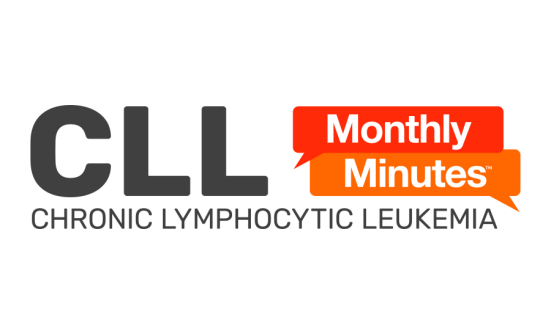It may come as no surprise that many people with cancer report that they prefer to take their medications orally, rather than intravenously.1 Common reasons for preferring oral over intravenous administration include decreased stress and discomfort, and increased flexibility and convenience.1
For patients with chronic lymphocytic leukemia (CLL), oral targeted therapies have transformed treatment and have rapidly become the standard of care.2,3 By specifically inhibiting the molecules that CLL cells need to grow, such as Bruton tyrosine kinase in the case of ibrutinib and acalabrutinib or B-cell leukemia/lymphoma 2 in the case of venetoclax, regimens containing oral targeted therapies have been shown to be effective against CLL while having a more favorable safety profile compared with older, intravenous chemoimmunotherapy.3
Although the benefits of oral administration may seem obvious, one benefit to receiving intravenous administration in a clinic is that both patients and their treatment team know that the patient is following, or adhering to, their treatment schedule. Studies have shown that as many as 88% of people with cancer prescribed oral targeted therapies do not take their pills precisely as directed.2 This is important because data from studies in CLL have shown that even brief treatment interruptions by missing doses can lead to lower survival rates.2,4
That said, measuring whether patients are following their treatment plan poses challenges in clinical practice.2 In an ongoing study, investigators are evaluating several different strategies for measuring adherence in a busy oncology practice caring for older adults with CLL.2 All patients in this study are aged ≥70 years and living outside of nursing homes.2 Their adherence is being measured at 6 clinic visits over the course of a year using a combination of a patient survey, pill counting, and the use of an electronic bottle cap that measures each time a pill bottle is opened.2
Overall, 25 patients aged 71 to 93 years have been enrolled in this study; 21 patients have CLL, 3 have mantle-cell lymphoma, and 1 has marginal-zone lymphoma.2 Factors that could impact adherence have been measured, and include cognitive impairment (seen in 28% of included patients), depression (24%), and taking >5 medications a day (92%).2 Approximately 70% of patients in the study are taking ibrutinib and 20% are taking venetoclax.2 (Patients taking other oral medications have been included although those drugs were not presented.)
At the time of this writing, adherence data from 63 clinic visits (30 virtual, 33 in clinic) have been reported.2 The researchers have found that asking patients about their adherence (self-reporting) could be used in all situations, although it was more difficult to systematically obtain information using more objective methods such as pill-counting electronic bottle caps.2 Specifically, pill counting can be difficult to do during virtual visits and patients often do not bring their medicines with them for in-person visits. Likewise, in this study, incompatibility with pill packaging limited the use of electronic bottle caps.2
Despite the limitations, researchers found that electronic bottle caps accurately reflected the information self-reported by patients, and to date, only 4 (16%) patients have been nonadherent to their prescription.2 Notably, a patient’s age or the presence of factors that could impair adherence have not proved to be predictors of lack of adherence.2
Taken together, this study is highlighting the challenges in measuring patient adherence to oral therapies. Despite its limitations, patient self-reporting remains the easiest tool to use to measure adherence in routine clinical practice, although more objective monitoring technologies may be able to overcome these challenges.2
References
- Eek D, Krohe M, Mazar I, et al. Patient-reported preferences for oral versus intravenous administration for the treatment of cancer: a review of the literature. Patient Prefer Adherence. 2016;10:1609-1621.
- Akhtar OS, Gage-Bouchard ER, Carozza D, et al. Feasibility of measuring adherence to oral oncolytics in routine clinical practice: a pilot study in older adults with lymphoid disorders. Presented at the 2021 European Hematology Association Meeting; June 9, 2021. Abstract LB1498.
- Patel K, Pagel JM. Current and future treatment strategies in chronic lymphocytic leukemia. J Hematol Oncol. 2021;14:69-89.
- Ramachandiran B, Dubashi B, Kayal S, et al. Assessment of oral anticancer medication adherence: a survey from a tertiary cancer center. South Asian J Cancer. 2021;10:127-130.















